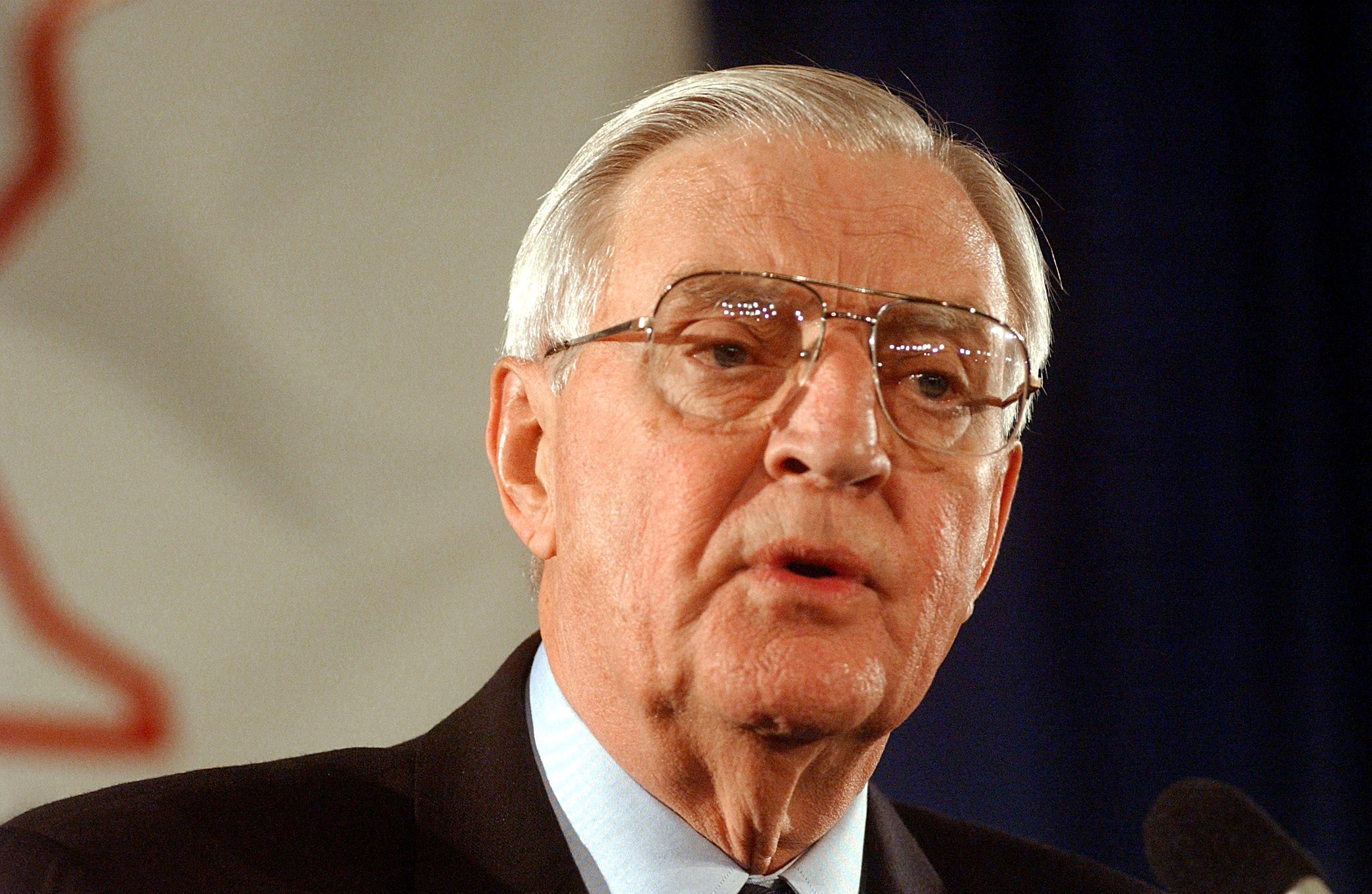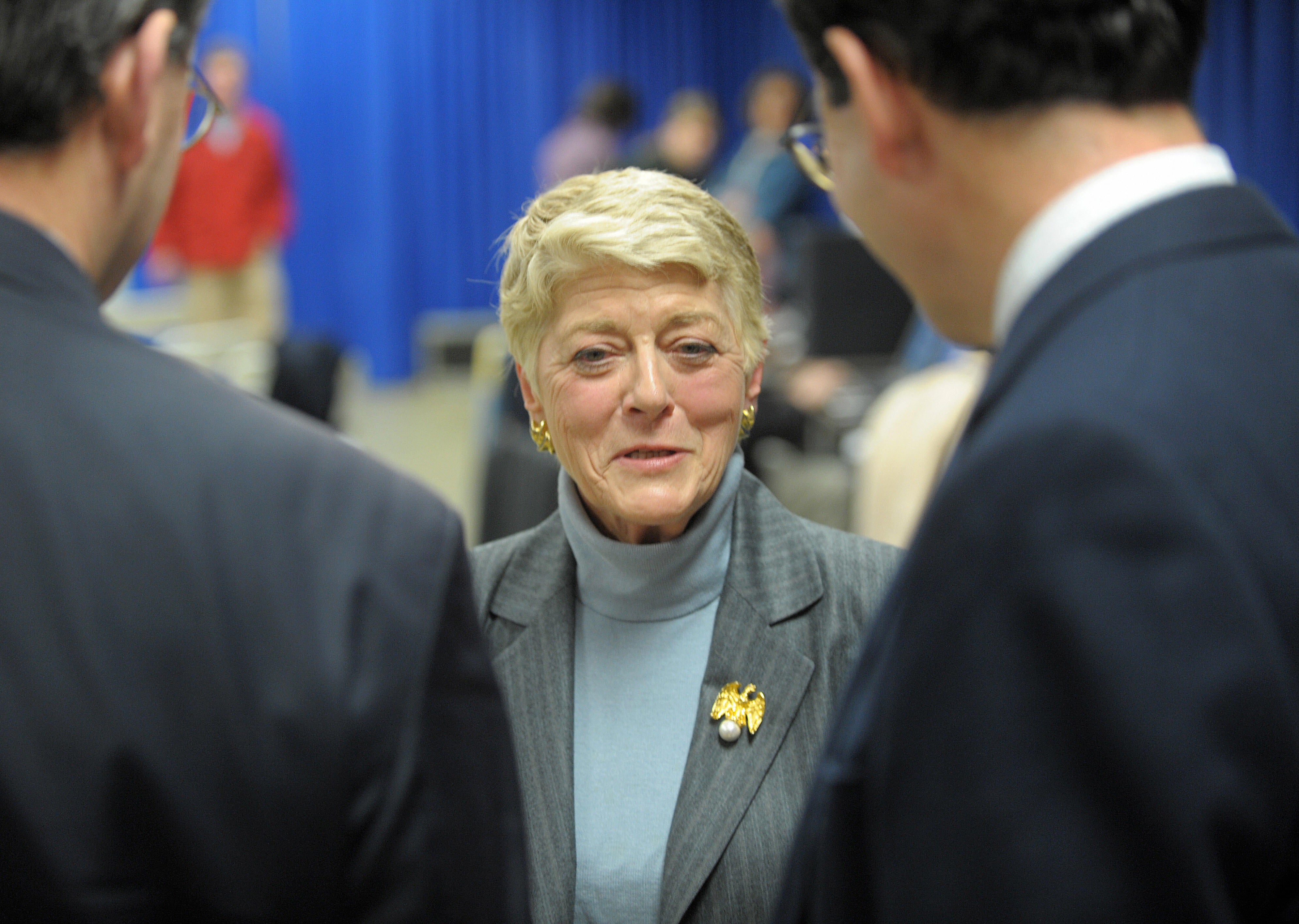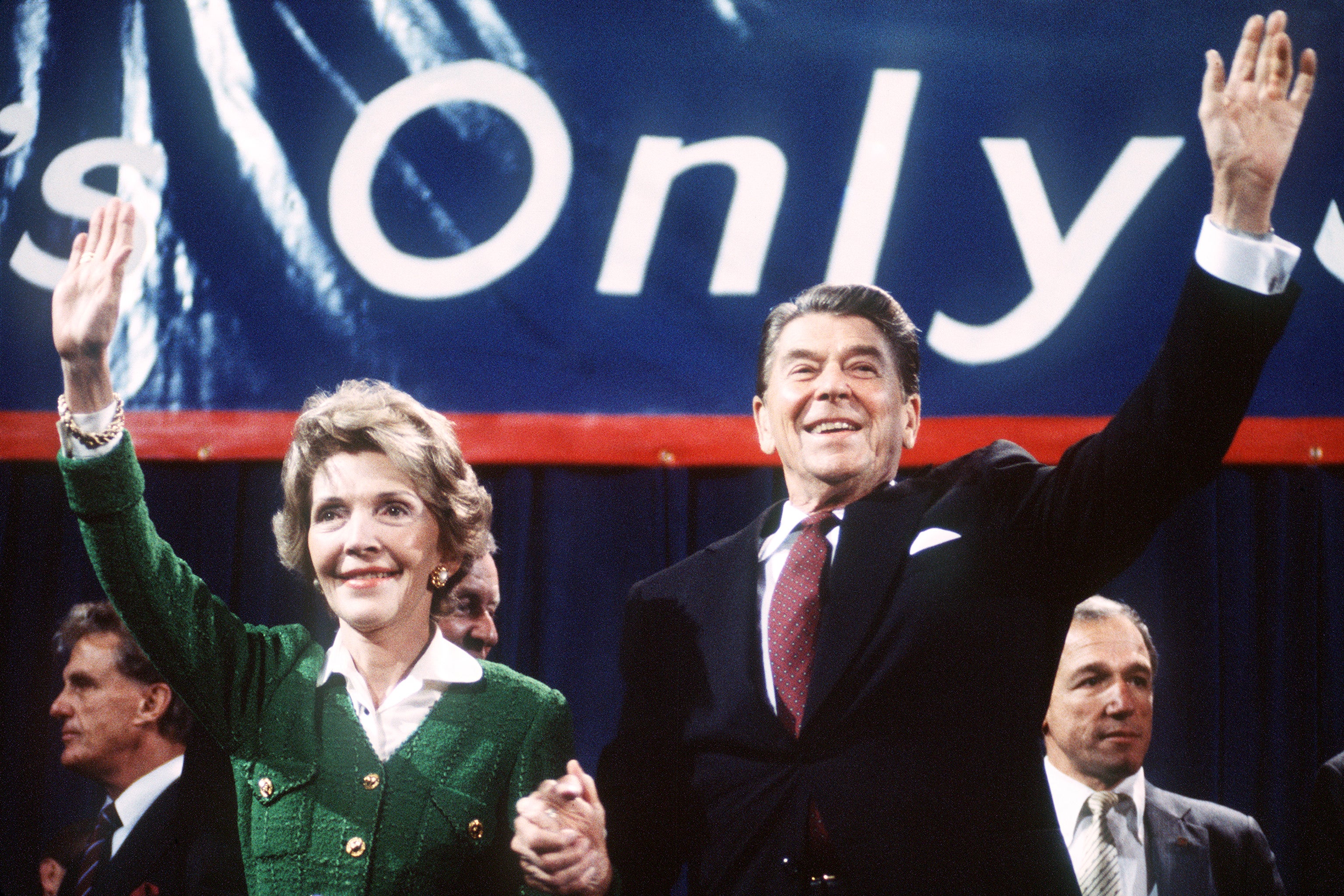RIP Walter Mondale – an old school gentleman who nodded to the future
There is an important connection between Jimmy Carter’s vice president and Kamala Harris, writes Andrew Buncombe


Walter Mondale was a man on a mission – but he only had days to pull it off.
A week earlier, on 25 October, 2002, Paul Wellstone, the fiercely-loved senator from Minnesota, had died with his family when his campaign plane crashed in the northwest of the state in the freeze of a Midwest winter.
As Democrats scrambled to put someone else on the ballot for a race they had expected to win, there was only one real option: Walter “Fritz” Mondale”, who had represented Minnesota as a senator himself years earlier, before serving as Jimmy Carter’s vice president, and then being defeated in a landslide by Ronald Reagan when he sought the presidency himself.
“[I am here] for my country,” Mondale had told The Independent as he shook hands and posed for photographs in a city centre department store in Minneapolis. “And there is something else, our US Senator, whom I admired, and his wife and daughter, died in a plane accident. And we only have five days to go and we needed someone who could work to attack the problems our country faces right now.”
He added: “I felt this was something I should do and this is something I want to do as well.”
Mondale was 74. After losing to Reagan in 1984, winning just the District of Columbia and his home state compared to Reagan’s haul of 49, he had returned to private practice as a lawyer, then served as ambassador to Japan under Bill Clinton.

After that, his public life was very much over. That day in 2002, he made clear he had stepped in to try and win, four decades after first being elected, because he was answering the call of his party.
As it was, a few days after that encounter, he would be narrowly defeated by Republican Norm Coleman, a former mayor of St Paul. While polls had suggested Wellstone, known for his activism over labour rights was set to hold onto his seat, reports suggested a highly politicised memorial service for the late senator had upset some voters. Coleman also sought to play on the fact he was 20 years younger than Mondale.
In his concession speech in the early hours, Mondale displayed no bitterness and appointed no blame, saying: “It’s on my shoulders.”
“At the end of what will be my last campaign, I want to say to Minnesota, you always treated me well,” he added. “It’s important for you to know that your ideals are often tested more in defeat than in victory, to know that this is not the end but the beginning of what you can do for this state.”

When Mondale died in April 2021 at the age of 93, much was made of his grace and dignity, his reputation for “old school” manners and an ability to work with members of the opposition. The son of a Methodist minister and music teacher, he had attended state schools before obtaining a politics degree at the University of Minnesota.
In 1951 he enlisted in the army, and when he was discharged, he made use of the GI Bill to get a law degree from the University of Minnesota Law School. He went on to work as a lawyer, but was already interested in politics, working as a volunteer on the 1948 Senate campaign of Democrat Hubert Humphrey, who himself went on to serve as vice president. He married Joan Adams in 1955 and the couple had three children. She passed away in 2014, and the couple’s daughter, Joan, died in 2011.
Much of Mondale’s reputation as a “happy warrior” stems from his failed 1984 bid to defeat Reagan. In a moment now embedded deep into US political lore, the pair met for their second presidential debate in Kansas City, Missouri, on Sunday October 21.
Going into the debate, Reagan, then aged 73, was under considerable scrutiny over his mental competence, partly as a result of having appeared confused during the first debate. (Reagan would tell the American public in a powerful letter in 1992 that he was suffering from Alzheimer’s disease.)
The president had been preparing to be asked about his age, and the fact Mondale was 20 years younger than him, and indeed he was.
Moderator Henry Trewhitt, of The Baltimore Sun, said he wanted to ask a question that had been “lurking out there for two or three weeks and cast it specifically in national security terms”. He said the president was the oldest in history, and had been reportedly tired after the first debate.
He asked Reagan whether he would be able to function in circumstances such as the Cuban Missile crisis, when John F Kennedy apparently had to go for days without sleep.
“I want you to know that also I will not make age an issue of this campaign,” Reagan promptly responded. “I am not going to exploit, for political purposes, my opponent’s youth, and inexperience.”
The audience erupted in laughter, as did Mondale. Two weeks later, Reagan won in a massive 58-40 landslide.
Looking back at the images of Mondale and Reagan, is it easy to see that they belonged to a different era. Reagan’s 1980 campaign had borrowed from the playbook of Richard Nixon and sought to stir up racial anxiety, denouncing what he termed “welfare queens”.
That year, he had even held his first campaign rally in Philadelphia, Mississippi, the site of the notorious “Mississippi Burning” murder of three civil rights workers in 1964. At the event, he talked about so-called “states rights”, which had been the shorthand used by Alabama governor George Wallace and others as they sought to stop segregation just 15 years earlier.
Neither candidate, for example, was asked about race or white supremacy or whether Reagan was using such coded language.
Yet Mondale, a lifelong liberal, was ahead of his time in many ways. As a senator in the 1960s, he had been a chief sponsor of the federal Fair Housing Act, which prohibited discrimination in housing and was a pillar of federal civil rights legislation. As vice president, he was the first to expand the office, and established the practice of having lunch each week with Carter, a president and vice presidential fixture at the White House that has continued to his day.
Perhaps Mondale’s most progressive act came in the summer of 1984, when shortly before the Democratic Party’s convention, he picked New York Congresswoman Geraldine Ferraro to join him as his running mate. While women had been nominated as both president and and vice president by minor outfits, Ferraro was the first for a major party.
“By choosing a woman to run for our nation’s second highest office, you send a powerful signal to all Americans: there are no doors we cannot unlock,” she said at the convention in San Francisco. “We will place no limits on achievement. If we can do this, we can do anything.”
Indeed, when Mondale died last month, vice president Kamala Harris pointed to the importance of his selection of Ferraro a generation earlier. She had been able to break the barrier that Ferraro, Sarah Palin, Hillary Clinton, and others such as the Green party’s Jill Stein, and Winona LaDuke, had battered on.
“With that nomination, Vice President Mondale opened ‘a new door to the future’, to borrow his words,” Harris said. “Vice President Mondale was so generous with his wit and wisdom over the years. I was able to speak with him just a few days ago and thank him for his service and his steadfastness. I will miss him dearly.”
Even though he had not appeared in public as the pandemic told hold of the United States, and the rest of the world, Mondale keep abreast of events internationally, and closer to home.
For instance, after Donald Trump was elected president, by also using the Nixon playbook and seeking to sow racial animus, Mondale spoke out against him.

In 2019, he said he saw something “detestable” within Trump, and said doctors had told him they saw symptoms of “psychological problems” in his behaviour.
And after George Floyd was murdered by Minneapolis police officer Derek Chauvin in May 2020, and the city and nation were shaken by protests and anger, Mondale wrote an op-ed for the Star Tribune newspaper praising those taking to the streets.
“From my perch in Minneapolis, I have watched with horror at the death of George Floyd in the custody of Minneapolis police,” he wrote. “I’ve also felt pride as so many Minnesotans peacefully took to the streets demanding justice and spurred a nation and the world to join the struggle.”
Mondale passed away on April 19. The following day, a Minneapolis jury returned a guilty verdict against Derek Chauvin on all three charges – second-degree unintentional murder, third-degree murder and second-degree manslaughter.
Mondale’s family issued a statement saying it was pleased the former vice president “had the opportunity to see the emergence of another generation of civil rights reckoning in the past months”.
He had spent the final days of his life receiving a stream of calls of appreciation and thanks from the likes of Joe Biden, Jimmy Carter, Bill Clinton and Harris.
He also wrote a message for his staff, thanking them for their support over the years.
“Well my time has come,” said the note, that pictured him sitting with his dog and waving.
“I am eager to rejoin Joan and Eleanor. Before I go, I wanted to let you know how much you mean to me. Never has a public servant had a better group of people working at their side!
“Together we have accomplished so much and I know you will keep up the good fight. Joe in the White House certainly helps. I always knew it would be okay if I arrived some place and was greeted by one of you. My best to all of you!”
He signed it simply “Fritz”.
Join our commenting forum
Join thought-provoking conversations, follow other Independent readers and see their replies
2Comments